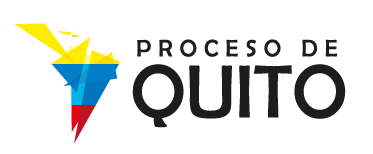Results of the Process Consultancy
This consultancy was proposed by the Presidency of the Brasilia Chapter to restructure the methodology of the Quito Process. The report offers a proposal to enhance the relevance of the discussions of this intergovernmental forum.
By Isadora Zoni
When Brazil assumed the Pro Tempore Presidency of the Quito Process, it placed on the agenda of priorities the need to know in depth the impacts of the intergovernmental forum and to review its processes in order to know which mechanisms could be improved and which could be strengthened to achieve more relevant results at the regional level.
It was with this second aspect in mind that the process consultancy was created, which has just delivered results after an exhaustive review of all the internal mechanisms of the Quito Process.
In fact, to know the perceptions of all participants, a survey was carried out with the participation of 23 officials, of which 14 from the United Nations agencies and 9 from the foreign ministries. It was concluded, among other things, that the procedure that requires the most attention in the review and restructuring effort is the preparation of the Technical Concept Note and the development of the workshops, given their obvious limitations.
In order to strengthen the scope of the Quito Process, emphasis will be placed on the Concept Note, which serves as the basis for the ten workshops, according to each thematic axis: Education, HIV/AIDS, Child and Teenage Protection, Socioeconomic Insertion, Asylum and Shelter, Guidance Centers, COVID-19, Trafficking in Persons and Gender Equity.
Importance of a collective effort
The consultancy pointed out that for all the roles to be fulfilled, it is necessary to include a new figure in the process: a facilitator.
The concept notes will be the responsibility of the countries, which will be supported by the technical agencies. The leadership of the member countries is a cornerstone for strengthening the Quito Process as a mechanism for regional coordination.
In addition to the role of the champion countries, the consultancy also focused on the role of the participants in the workshops. For the workshops to be productive and regionally useful, the participants need to become protagonists in the process, contributing their ideas and adding to the discussion based on trigger questions.
Content of the Technical Concept Note
The Concept Note (CN) should contain, in its heading, the title, the name of the champion country and the name of the workshop participants. The proposal of the consultancy points out 8 requirements:
- Problem to be addressed: What is the problem? Which actors does it affect? The answers will be extended to the LAC region rather than to individual countries.
- Background and ongoing processes. Initiatives that have arisen from governments, civil society, and academia to address this problem.
- Characteristics and trends of the current and future scenario. Whether social, political, economic, or other types that affect the problem.
- Relationship with national policy and planning instruments in the region. Measures, policies, or strategies that relate to the problem.
- Implementation challenges in LAC. Possibilities of contributing to the solution of the problem addressed.
- General objective: What do you want to achieve with the workshop?
- Specific objectives: What results or products are expected?
- Topics to be covered in the workshop. Blocks and aspects to be addressed.
Other relevant recommendations
The Quito Process will consider a regional vision based on national best practices, involving technical counterparts in the consultations during the preparation of the Joint Declaration and including a space for consultation with recommendations, reflections and challenges; in addition to a standard protocol for each transfer of the Presidency.


